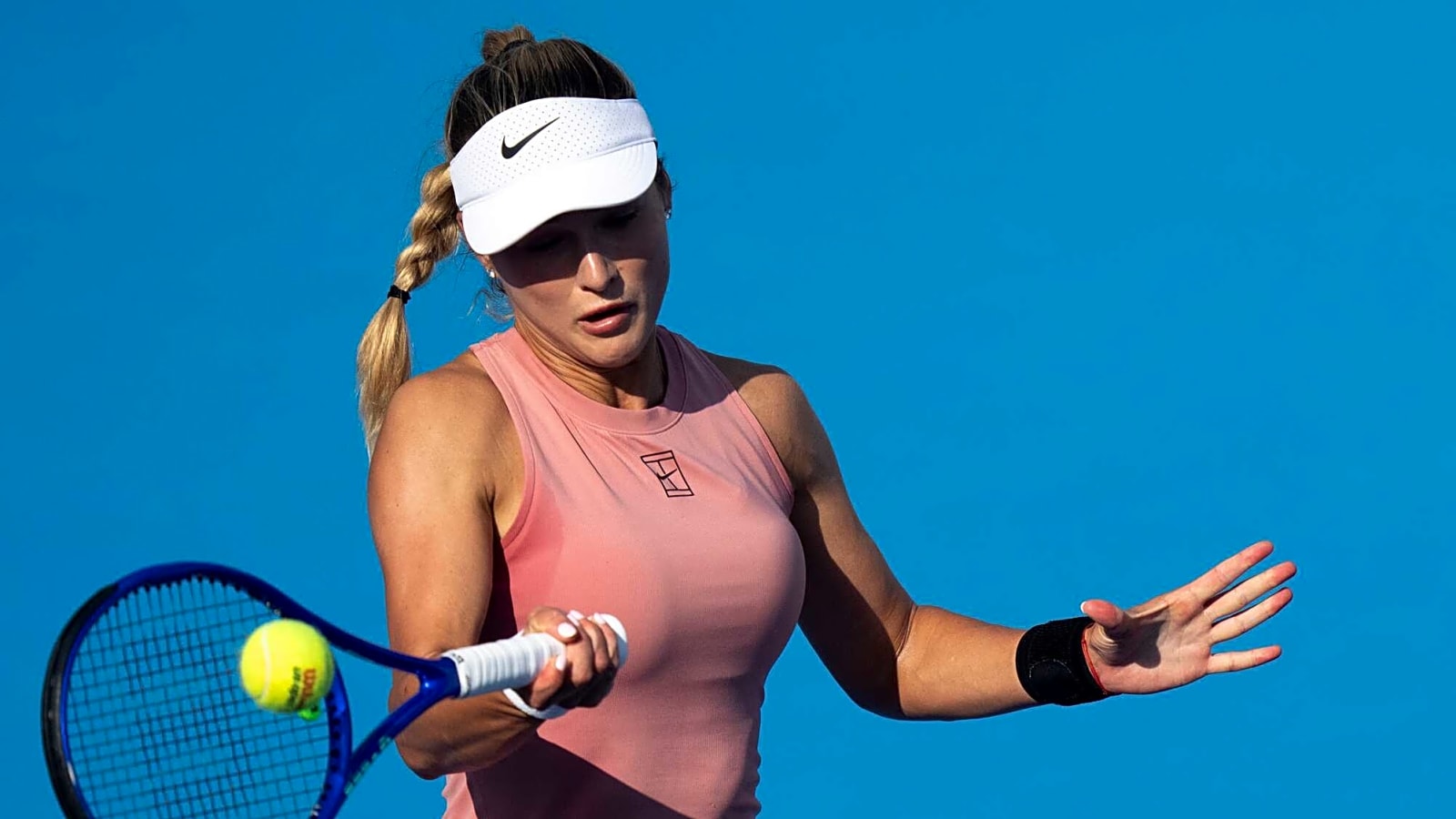
The tennis world loves a good scheduling controversy, and Anna Kalinskaya just served up a spicy one that’s got everyone talking. The World No. 34 didn’t hold back when she called out the WTA and Cincinnati Open organizers for what she described as completely unfair treatment after her grueling late-night victory.
Kalinskaya’s 2:30 AM Marathon Against Alexandrova
Let’s paint the picture here: Kalinskaya battled through a nail-biting three-set thriller against fellow Russian Ekaterina Alexandrova, losing the first set 3-6 before clawing her way back to win 7-6(5), 6-1. Sounds pretty standard for professional tennis, right? Wrong. This match didn’t wrap up until after 2:30 AM, leaving the Russian star dragging herself off the court when most people are deep in dreamland.
But here’s where it gets absolutely ridiculous – and where Kalinskaya’s frustration becomes completely understandable. After getting home at 2:40 AM and not hitting the pillow until 4 AM, she was expected to bounce back for an 11 AM quarter-final match against none other than Iga Swiatek. Talk about adding insult to injury.
The Social Media Explosion That Had Tennis Fans Nodding
Kalinskaya didn’t just quietly accept this scheduling disaster. She took to social media with the kind of raw honesty that makes you want to stand up and slow clap. Her Instagram story laid it all out: “How can the WTA and tournament expect athletes to perform their best when the scheduling is this unfair?”
She continued with the kind of logic that would make anyone with half a brain cell agree: “After my match against Alexandrova, I got home from the site at 2:40am and didn’t go to bed until 4am. I slept a bit and came to the site to practice. Then I get scheduled at 11am for tomorrow’s match – how does the tournament and WTA expect me to recover and continuously adjust my sleep pattern, which is one of the most important aspects of recovery? Seems a bit one-sided.”
One-sided? That’s putting it mildly. This scheduling feels like someone at the WTA was playing a particularly cruel game of “let’s see how much we can mess with the players.”
Why Kalinskaya’s Complaint Hits Different
Here’s the thing about sleep patterns and athletic performance – they’re not just “nice to have” factors. They’re absolutely crucial for peak performance, recovery, and injury prevention. When you’re asking a professional athlete to completely flip their circadian rhythm within hours, you’re essentially setting them up for failure.
The science backs this up too. Sleep deprivation affects reaction time, decision-making, and physical coordination – you know, pretty much everything that matters in professional tennis. So when Kalinskaya points out that sleep is “one of the most important aspects of recovery,” she’s not being dramatic. She’s stating facts that apparently escaped the tournament schedulers.
The Bigger Picture: WTA’s Scheduling Crisis
This Cincinnati Open incident isn’t happening in a vacuum. Iga Swiatek herself has been vocal about the crazy scheduling demands players face throughout the season. Last year, she described the situation as “crazy” and pointed out that players barely have time to work on their games or, you know, live like normal human beings.
Swiatek’s commentary was particularly sharp: “We have so many mandatory tournaments that we literally need to show up and we don’t have time to work on stuff or live peacefully because from one tournament we’re going straight to another.” She even mentioned that the season is so packed that the first tournament starts on December 29th. Because apparently, tennis players don’t deserve a proper off-season either.
The Money vs. Player Welfare Debate
Sure, the prize money in professional tennis has grown substantially, and that’s supposed to compensate for the physical and mental strain. But here’s a wild thought – maybe players shouldn’t have to choose between their health and their careers? The huge payouts don’t magically make sleep deprivation less harmful or scheduling conflicts less frustrating.
The mandatory tournament system creates a particularly brutal catch-22. Top players like Kalinskaya can only skip events if they cite injury, which essentially forces them to choose between their well-being and their ranking points. It’s a system that seems designed to push athletes to their breaking point.
What This Means for Tennis Fans
As Swiatek pointed out, this scheduling madness isn’t just bad for players – it’s bad for fans too. When players are exhausted, injured, or forced to withdraw from tournaments, fans miss out on seeing their favorites compete at their best. It’s a lose-lose situation that benefits no one except maybe tournament organizers trying to cram in as many matches as possible.
Kalinskaya’s public callout of the WTA might seem like just another player complaint, but it’s actually highlighting a systemic problem that’s affecting the entire sport. When a player has to choose between adequate recovery time and professional obligations, something is seriously broken.
The tennis world should be paying attention to complaints like Kalinskaya’s, because they’re coming from athletes who know what it takes to perform at the highest level. Her frustration isn’t just about one bad night’s sleep – it’s about a scheduling system that seems to forget that professional athletes are still human beings who need rest to perform their best.
More must-reads:
- Hurricanes hire former player as development coach
- Pirates' top pitching prospect to make long-awaited MLB debut
- The '2024 NFL rushing TD leaders' quiz
Breaking News
Trending News
Customize Your Newsletter
 +
+
Get the latest news and rumors, customized to your favorite sports and teams. Emailed daily. Always free!








